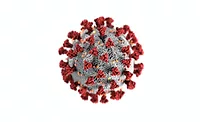Senators Introduce Bill To Combat Online Piracy, Counterfeiting
- Give the Department of Justice an expedited process for cracking down on websites that are dedicated to making infringing goods and services available;
- Authorize the Department of Justice to file an in rem civil action against a domain name, and seek a preliminary order from the court that the domain name is being used to traffic infringing material. The Department must publish notice of the action promptly after filing, and it would have to meet clear criteria that focus on the sites' substantial and repeated role in online piracy or counterfeiting;
- Provide safeguards allowing the domain name owner or site operator to petition the court to lift the order;
- Provide safeguards against abuse by allowing only the Justice Department to initiate an action, and by giving a federal court the final say about whether a particular site would be cut off from supportive services.
In June, the Senate Judiciary Committee held the first oversight hearing with the Intellectual Property Enforcement Coordinator (IPEC), Victoria Espinel. The IPEC was established by the 2008 Prioritizing Resources and Organization for Intellectual Property (PRO-IP) Act. The Coordinator chairs an inter-agency committee, and was tasked with producing a joint strategic plan to combat piracy and counterfeiting. The PRO-IP Act was designed to address intellectual property rights enforcement concerns and to protect American innovation and advancement.
Looking for a reprint of this article?
From high-res PDFs to custom plaques, order your copy today!







